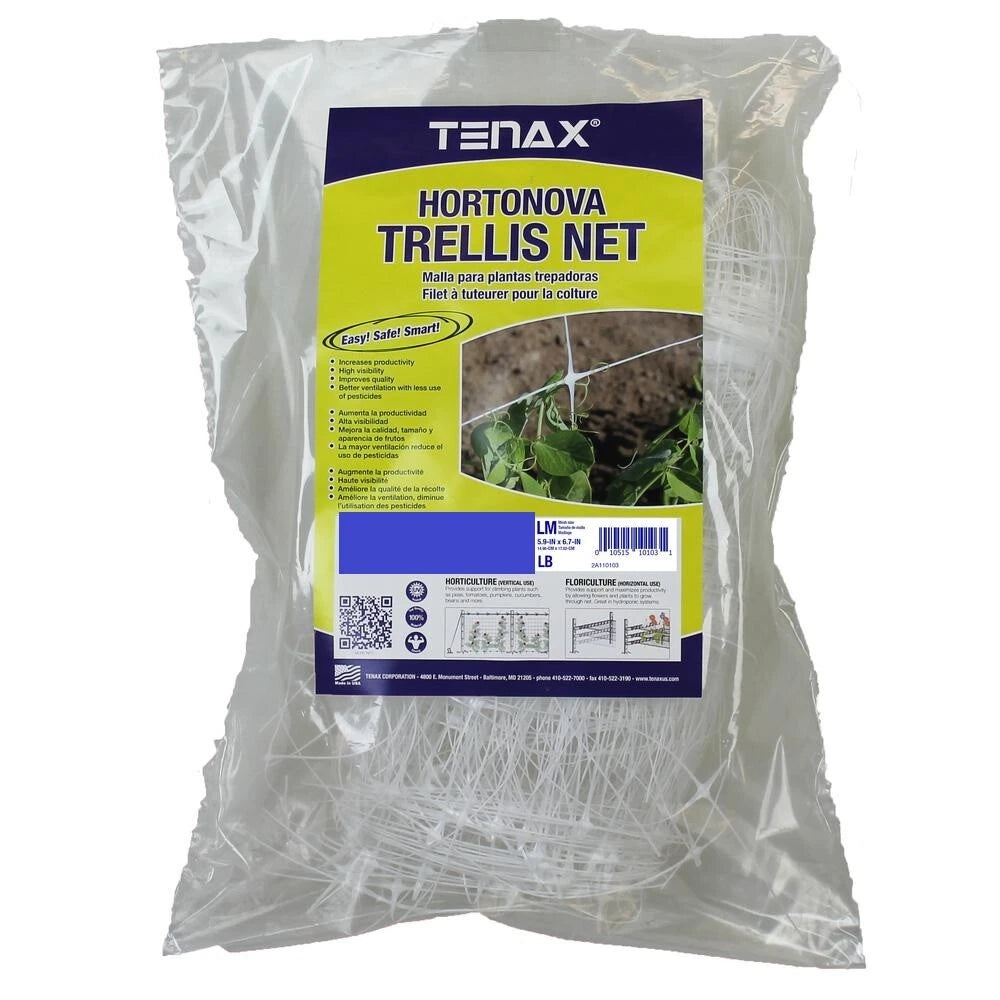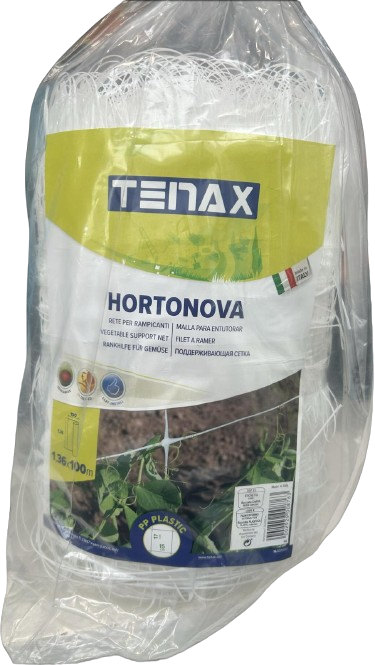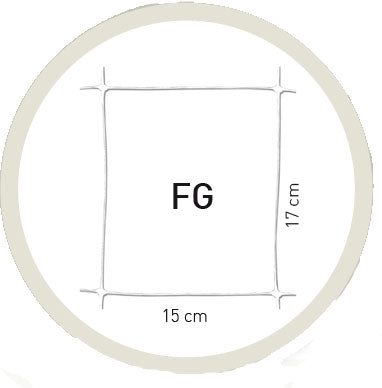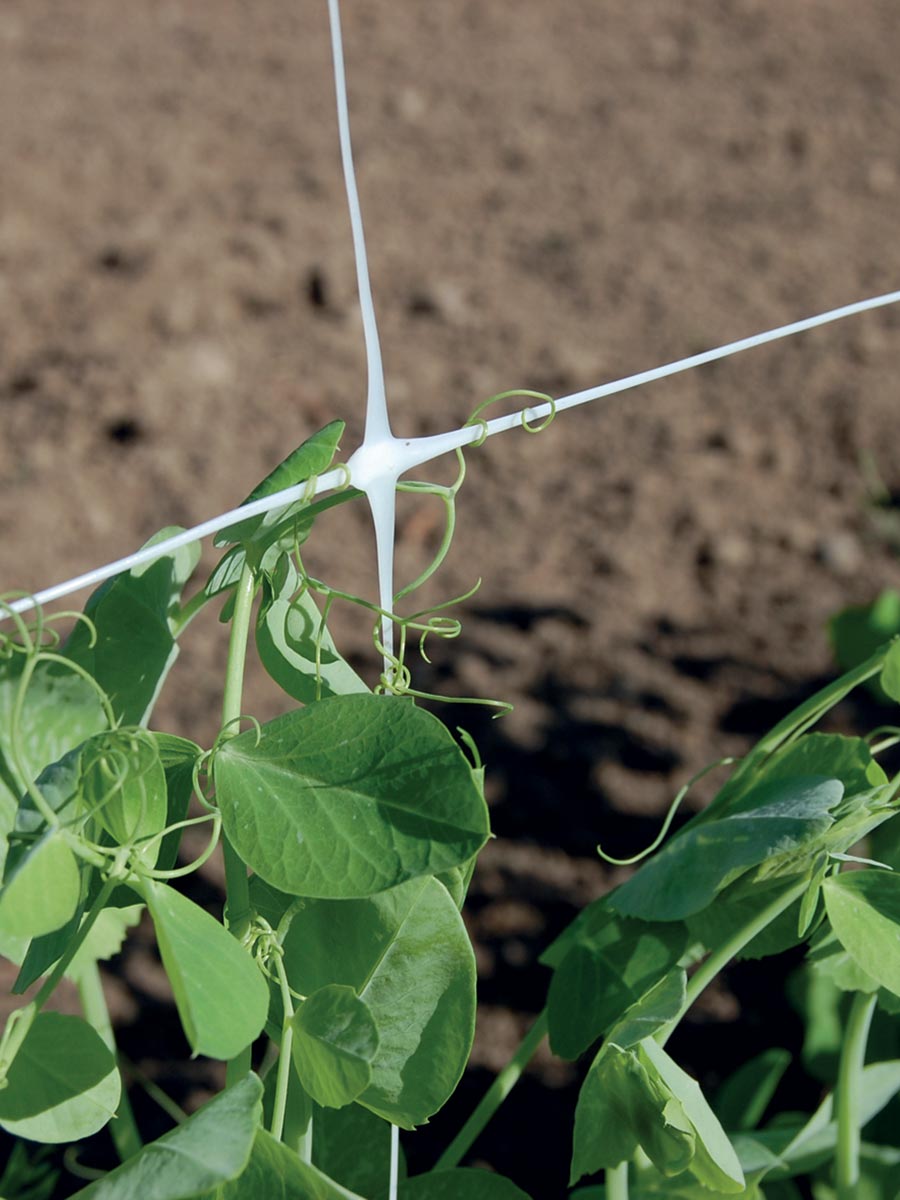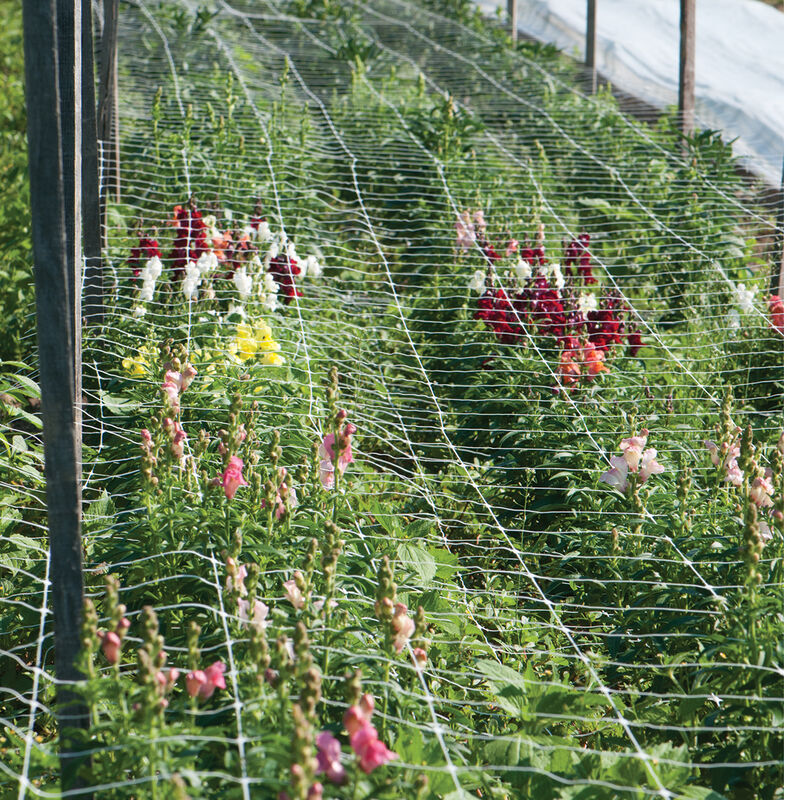Description
The quality netting made in Italy since 1968
TENAX HORTONOVA is the polypropylene mesh that has revolutionized the climbing vegetable cultivation system. It has replaced metal meshes, iron trellises and perishable materials such as bamboo reeds or wood, traditionally used to create support and separation frames.
Ideal for both vertical and horizontal Plant support and Scrog training applicatons
TENAX HORTONOVA offers the advantages of an industrially manufactured plastic mesh: it is long-lasting, light, easy to move, quick to install and resistant to external agents, and it has also technical features, such as different sizes and meshes. TENAX HORTONOVA is easy to install and is cost-effective.
It is produced from top quality polypropylene and made through a unique dual stretching and extrusion process that ensures optimum strength and maximum lifespan. Light and easy to install, UV treated, resistant to bacteria, chemicals and mould, it is ideal for growing cut flowers and climbing vegetables.
Applications
The TENAX HORTONOVA polypropylene mesh, if installed vertically, is used to grow climbing vegetables like peas, beans, tomatoes, cucumbers, peppers, aubergines, courgettes, and climbing pumpkins.
Features
- It is produced from top quality polypropylene and made through a unique dual stretching and extrusion process that ensures optimum strength and maximum lifespan.
- Light and easy to handle and install
- UV treated
- It resists bacteria, chemicals and mould
Advantages
- It increases exposure to sunlight and facilitates photosynthesis
- It increases air circulation
- It helps to get a more abundant harvest
- Products are not left on the ground and people do not trample on them
- It reduces plant diseases and fewer agrochemicals must be sprayed
- It improves the quality of vegetables
- It considerably reduces labour compared to using raffia and metal wire
The advantages of Made in Italy
The TENAX HORTONOVA net has undergone an accelerated ageing laboratory test. The test simulated 2 years of exposure to an average sun radiation of 5,500 MJ (mega joule)/m², the equivalent to the Mediterranean Basin climatic conditions. The results were extraordinary: transversal threads maintained 85% of their initial tensile strength, while longitudinal threads performed even better (100%) showing no decay.





